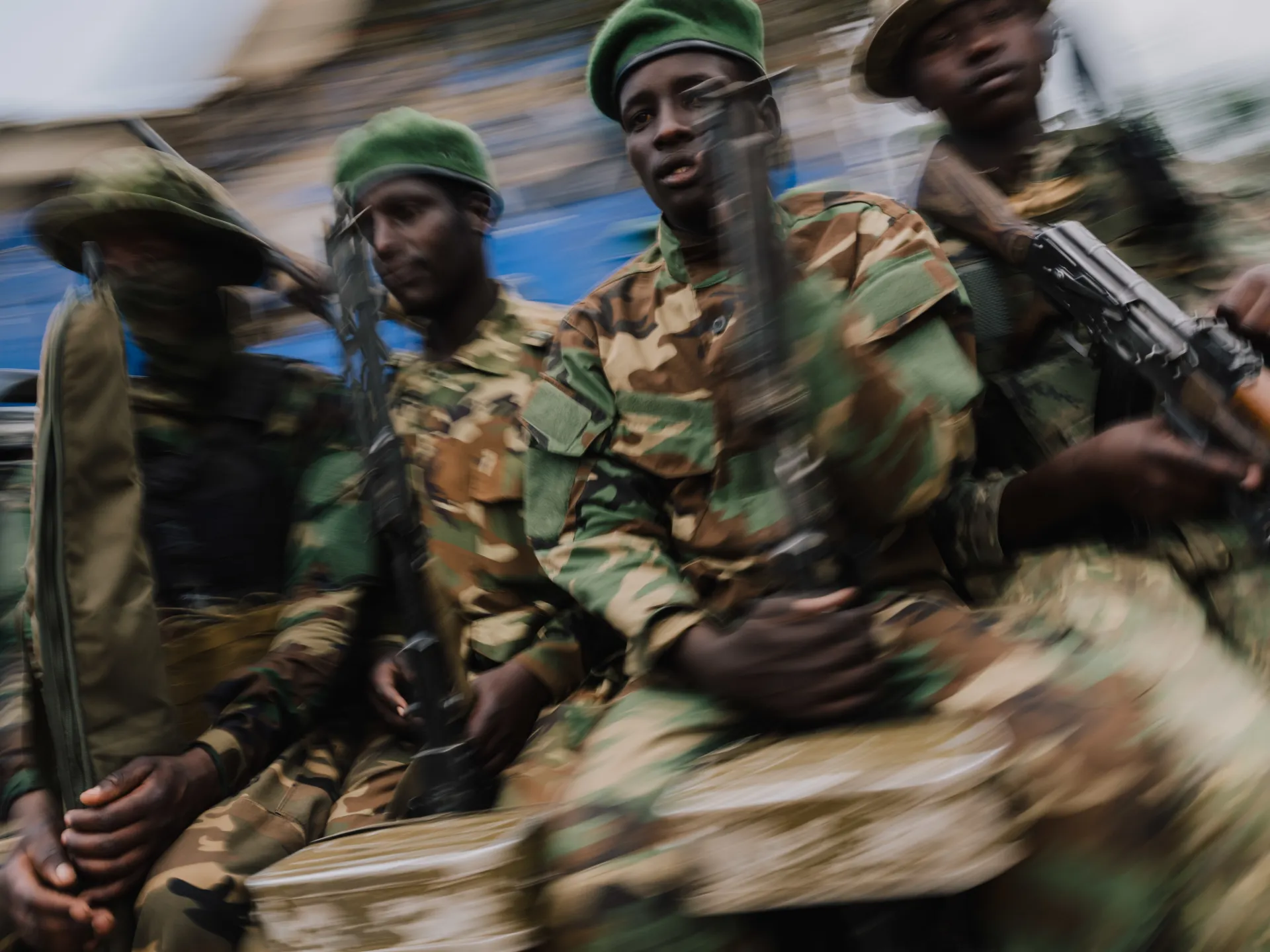US sanctions Rwandan army and top officials for supporting M23 in DRC | Conflict News
Kinshasa welcomed the sanctions while Kigali said the US move ‘unjustly’ targets Rwanda.
Published On 3 Mar 2026
The United States has imposed sanctions on Rwanda’s military and four of its top officials for “direct operational support” of the M23 rebel group that has seized large swaths of territory in the eastern Democratic Republic of the Congo (DRC).
Rwanda has long rejected allegations from DRC, the United Nations and Western powers that it backs M23 and its affiliated Congo River Alliance (AFC), which captured key cities in the mineral-rich east, including the capitals of North and South Kivu provinces last year.
Recommended Stories
list of 3 itemsend of list
The US Department of the Treasury said on Monday that the rebels’ gains would not have been possible without Rwandan backing.
The US State Department separately added that M23 continued to capture territory even late last year “in clear violation” of a US-mediated agreement.
US President Donald Trump in December brought together the leaders of Rwanda and the DRC to sign a peace deal, predicting a “great miracle”.
But just days afterwards, the State Department noted, the M23 captured the key Congolese city of Uvira.
The Treasury Department said those included in Monday’s sanctions are Vincent Nyakarundi, the Rwandan Defence Force (RDF) army chief of staff; Ruki Karusisi, a major-general; Mubarakh Muganga, chief of defence staff; and Stanislas Gashugi, special operations force commander.
The US said they were critical to M23’s gains.
“M23, a US- and UN-sanctioned entity, is responsible for horrific human rights abuses, including summary executions and violence against civilians, including women and children,” State Department spokesman Tommy Pigott said in a statement.
“The continued backing from the RDF and its senior leadership has enabled M23 to capture DRC sovereign territory and continue these grave abuses,” he added.
‘A strong signal’
Rwandan government spokesperson Yolande Makolo said in a statement that the sanctions “unjustly” target Rwanda and “misrepresent the reality and distort the facts of the conflict” in eastern DRC.
She accused DRC of violating the peace agreement by allegedly conducting “indiscriminate” drone attacks and ground offensives.
Rwanda’s government also told the Reuters news agency that Kigali was “fully committed to disengagement of its forces in tandem with the DRC implementing their obligations” under US-led mediation, but accused DRC of failing to keep promises such as ending support for militias.
The Congolese government, however, said it welcomed the sanctions, describing them as “a strong signal in support of respect” for its territorial integrity and sovereignty.
US Treasury Secretary Scott Bessent said in a statement that the department “will use all tools at its disposal to ensure that the parties to the Washington Accords uphold their obligations”.
“We expect the immediate withdrawal of Rwanda Defence Force troops, weapons and equipment,” Bessent said.
Fighting continues in eastern DRC on several fronts, despite the accord signed between Kigali and Kinshasa in Washington, and a separate peace deal signed between M23 and the Congolese government in Qatar last year.
Though M23 later pulled out of Uvira under US pressure, the rebels still hold other key Congolese cities, including Goma and Bukavu. The US Treasury Department said on Monday that M23’s continued presence near Burundi’s border “carries the risk of escalating the conflict into a broader regional war”.
M23 is the most prominent of about 100 armed factions vying for control in eastern DRC, near the border with Rwanda. The conflict has created one of the world’s most significant humanitarian crises, with more than seven million people displaced, according to the UN agency for refugees.
M23 are already under US sanctions since 2013.
